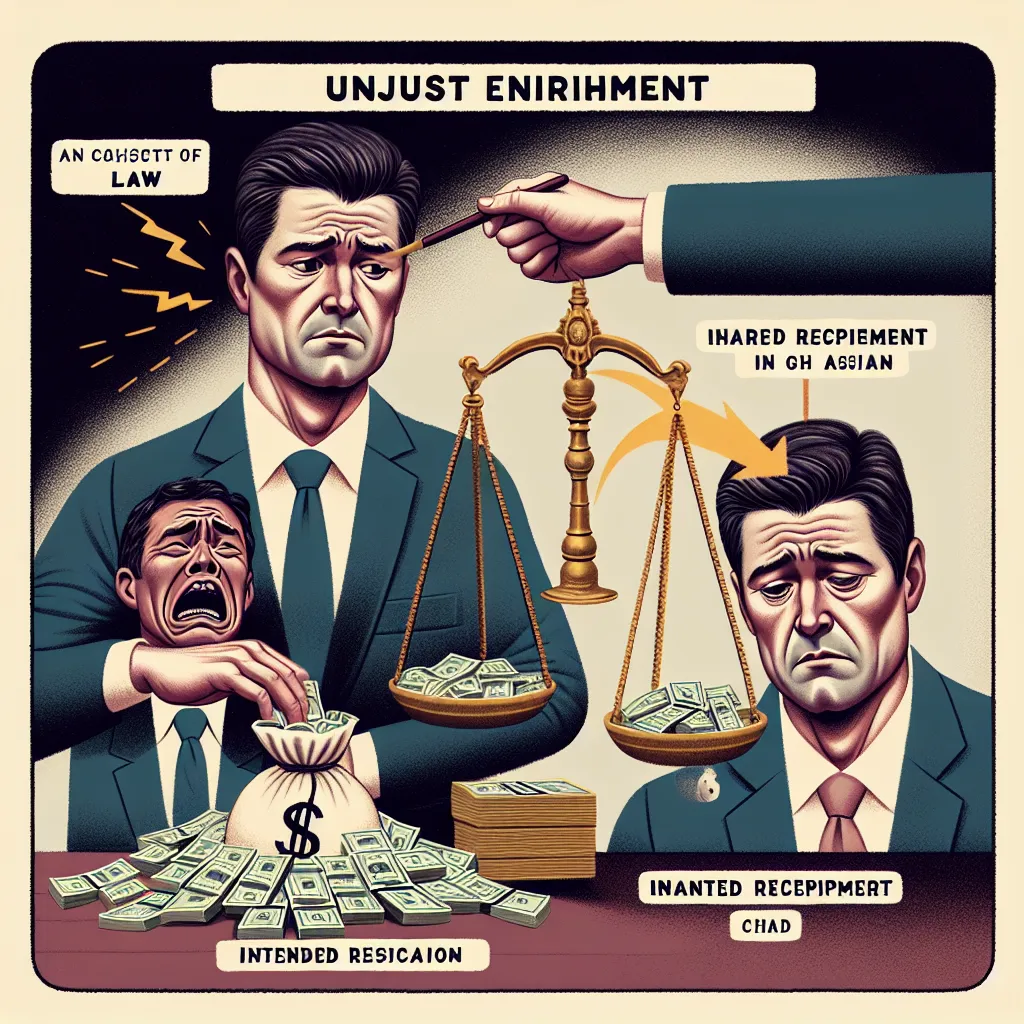Ask AI on The Internet
Question: Eric owes Chad R 700,000.00. Eric and Chad agree that the money can be paid into Chad’s account on the 1st of March 2024. Eric completes the payment and sends the proof of payment to Chad. Chad reviews the document and notices that the money has been paid into the incorrect bank account. He alerts Eric who checks the payment and discovers that the payment had erroneously been made to Oliver. Eric contacts Oliver and learns that R 700,000.00 had been paid into his back account, but none of the money has been used yet as Oliver was not sure why he had received the payment in the first place. Oliver is, however, now refusing to refund the money. Required: 5.1. Identify and describe the legal principle under the law of obligations that is applicable to the given scenario. (5 marks)
In the given scenario, the legal principle under the law of obligations that is applicable is **"unjust enrichment"**. ### Description of Unjust Enrichment: **Unjust Enrichment** is a foundational concept in many legal systems, founded on the principle that no one should be unjustly enriched at the expense of another. This principle implies that if one person is unjustly or unfairly benefitted at another's expense, the enriched party is required to make restitution or compensation to the wronged party. It aims to restore the parties to the position they were in before the unjust enrichment occurred. #### Key Elements of Unjust Enrichment: 1. **Enrichment**: - One party (Oliver) has received a benefit or enrichment (R 700,000) that he was not entitled to receive. 2. **At the Expense of Another**: - This enrichment occurred at the expense of another party (Eric), who made the erroneous payment. 3. **Unjust or Without Legal Ground**: - There is no legal basis for Oliver to retain the money. The receipt of the money was due to an error, not because of a debt or obligation that Oliver is entitled to. 4. **Obligation to Return**: - As Oliver has been unjustly enriched, he has a legal obligation to return the money to Eric. The retention of these funds by Oliver without proper justification would be considered unjust. #### Application to the Scenario: - **Enrichment**: Oliver has received R 700,000. - **Expense**: Eric, the one who made the erroneous payment, has faced a financial expense. - **Unjust**: The payment was made by mistake, not as a part of any legitimate transaction between Eric and Oliver. - **Obligation to Return**: Legally, Oliver is required to refund the R 700,000 to Eric as he has been enriched without any just cause. Under the principle of unjust enrichment, Eric has the right to demand that Oliver returns the money. Despite Oliver’s refusal, the law supports Eric in seeking restitution, either through direct negotiation or legal action if necessary. This ensures that Oliver does not benefit from a mistake and that Eric is restored to his original financial position.
Think your answer is better than the AI's? Post it below.
Other Most Relevant Posts:
 ### Title: **Contract Law in South Africa: Key Concepts and Applications**
### Title: **Employment of Minors in South Africa**
### Title: **Remedies for Latent Defects in South African Law**
### Title: **Contract Law in South Africa: Key Concepts and Applications**
### Title: **Employment of Minors in South Africa**
### Title: **Remedies for Latent Defects in South African Law**
Question Tags
If you want your question answered by an AI, click here.






Post your own comment: